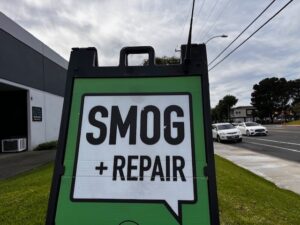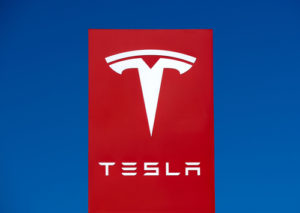
Electric Cars: Paving the Way to a Green Future
Perhaps all vehicles on the road will be electric by the time Earth Day 2050 rolls around, but until then consumers are reluctant to embrace the idea while there remain cheaper and more convenient gas-powered options.
According to the California Air Resources Board’s latest Advanced Clean Cars II regulations, all new passenger cars, trucks, and SUVs sold in California will be zero-emission vehicles by 2035.
Currently, the market share for sales of new electric vehicles in the United States is expected to reach just 12.4 percent in 2024 compared to 7.6 percent in 2023. That’s an increase of 46 percent year-over-year, but hybrid sales grew even further by 65 percent to represent an 8 percent market share up from 5.5 percent, according to Edmunds.
Indeed, there are many challenges along the path to a green future for transportation besides sticker shock that are impeding progress such as the lack of charging infrastructure and technical challenges.
This year marks the 54th annual Earth Day and while we acknowledge progress has been made in recent years, the transition to green alternatives is going to take time.
Earth Day is an event held annually in April to support initiatives that protect the environment from pollution such as gas-powered vehicles in recent years.
It all started with the creation of the 1970 Clean Air Act to slash deadly emissions from combustion engines.
Clean Air Act
There’s no question that automobiles and trucks are major contributors to greenhouse gas emissions. Indeed, over the years since the Clean Air Act was created, California has taken significant steps to reduce emissions from automobiles. It was the first state to create smog checks in 1984 and just six years later in 1990, the United States passed the Clean Air Act to reduce toxic air emissions.
Electric Vehicle Charging Stations in California
The Golden State leads the U.S. with 27 percent of all charging stations and 37 percent of all-electric vehicle sales as of 2022.
There are now 105,012 public and private charging stations throughout California with the majority of 2,286 stations located in Los Angeles County, according to data compiled by the California Energy Commission. The number of stations located in other counties are: Orange (929), Santa Clara (797), San Diego (753), San Bernardino (630), Riverside (579), Alameda (560), and San Mateo (391). Roughly 40 percent of the state’s charging stations are publicly owned and the majority are shared private stations.
Growth of Electric Vehicles

The market for electric vehicles continues to grow and last year sales of these vehicles led by Tesla hit 1.2 million units in the United States. Furthermore, on March 20th, 2024, the EPA released strict new emissions limits for all cars built between 2027 and 2032. The Multi-Pollutant Emissions Standards will require automakers to continue to move away from gas-powered vehicles in favor of electrification.
The new standards, in comparison to existing rules, aim to reduce carbon dioxide emissions from passenger vehicles by roughly 50 percent for new cars starting in the model year 2032. The EPA is projecting the percentage of battery-electric vehicles among new cars built in 2030 to 2032 will rise to about 56 percent.
Electric Vehicle Sticker Shock
However, as long as electric vehicles are expensive — the average price is $50,789 — most people won’t be able to afford one. However, there will still be the used market and California there is a push to make public transportation green.
Public Transportation
Gov. Gavin Newsom wants to shift public transit bus fleets from natural gas or diesel for fuel for buses to zero-emission buses by 2040. The goal is to eventually eliminate smog-forming air pollution from all cities.
There are some agencies who have successfully transitioned their fleets, but most are unable to commit to the transition due to the high cost of electric buses.
The first public transit agency in North America to switch to all electric buses was here in California, the Los Angeles Times reports. The Antelope Valley Transit Authority, which serves 450,000 residents in northern Los Angeles and southeastern Kern counties, transitioned its fleet of 86 buses to all-electric in just five years.
The Road to Electric Ahead
The road to transitioning California to all electric vehicles may still be a few decades away. However, as we commemorate Earth Day and note past achievements, it makes sense to keep moving forward and taking steps to embrace this new technology.
Hopefully, the auto industry will offer more more green transportation options in the future that will replace traditional transportation and improve air quality.
Eventually, our children may not have to choose between gas guzzlers and green vehicles.
California Lemon Law Lawyer James Johnson 1-(800) 558-1087

Is it time to break up with your car? Are you tired of repeated problems such as electrical issues, engine problems, or a dangerous safety issue? If that sounds familiar, you don’t have to wait for a recall before you reach out to an experienced attorney and get help. California Lemon Law Attorney James Johnson will review your case and let you know if it qualifies as a lemon.
We highly recommend that car owners with steering, engine, or other problems obtain invoices for all repairs and recall visits from the dealership. These documents will support your potential case. Should the vehicle experience repeated issues or become a safety risk, these documents support the Lemon Law Claim. Contact us for a free case review at 1-(800) 558-1087 or read on for answers to frequently asked questions.
Published on March 26, 2024
Disclaimer: This article provides general information about vehicles that may be covered by the California lemon law. However, the lemon law has very specific requirements that must be met for your vehicle to be considered a lemon. Every case has a unique set of circumstances and there are specific criteria that must be met for the lemon law to apply. It is imperative that you take immediate action if you believe your vehicle may qualify.
- BMW Recall 1.5 Million Vehicles Due to Braking System Issue - October 7, 2024
- 2024 Land Rover Discovery, Range Rover Recall Major Engine Fire Risk - September 6, 2024
- Tesla is recalling 9,136 Model X SUVs to Replace Roof Trim - August 23, 2024
